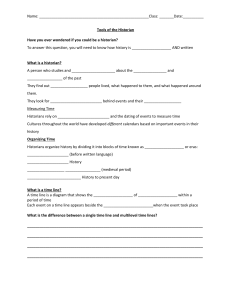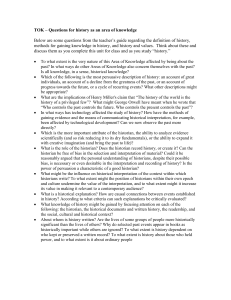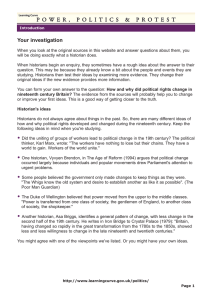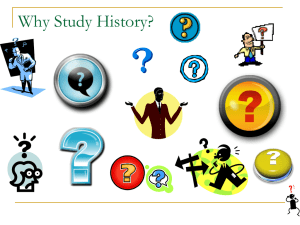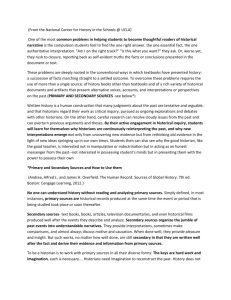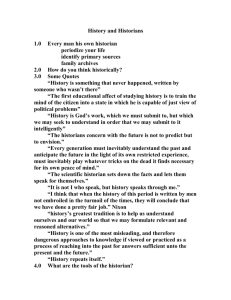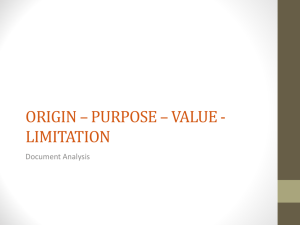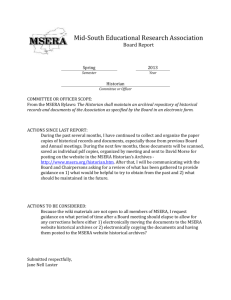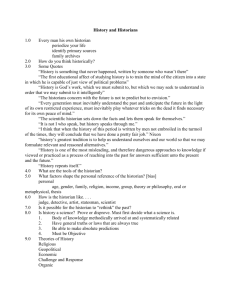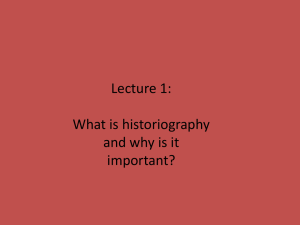History: Nature, Methods, Knowledge, Values Questions
advertisement
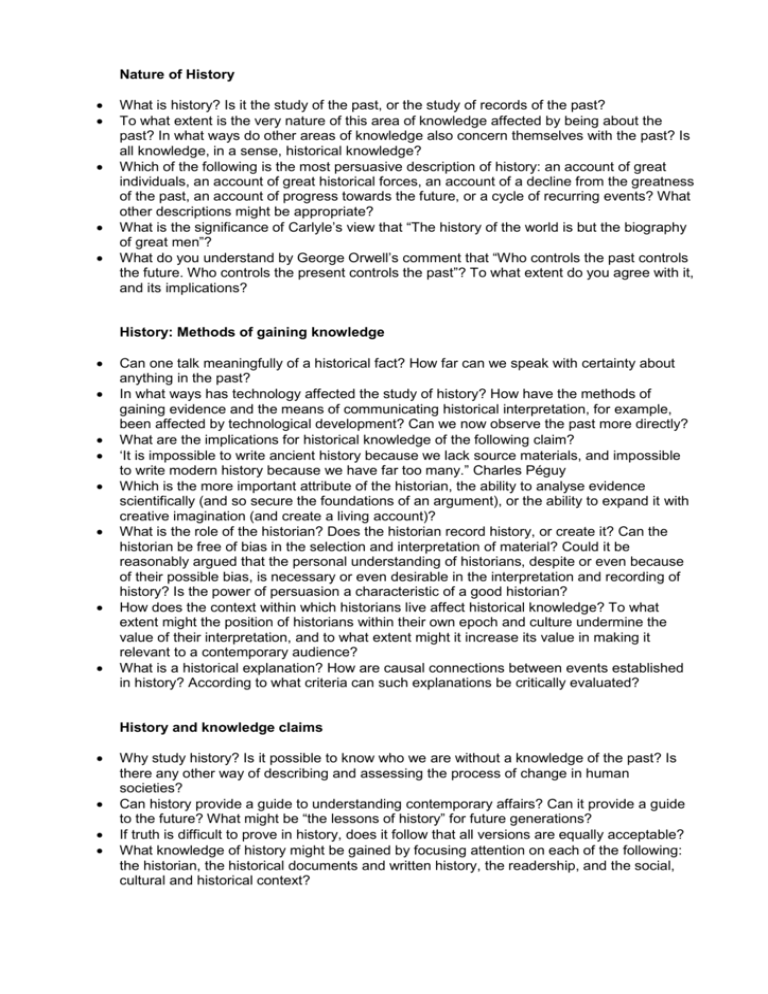
Nature of History What is history? Is it the study of the past, or the study of records of the past? To what extent is the very nature of this area of knowledge affected by being about the past? In what ways do other areas of knowledge also concern themselves with the past? Is all knowledge, in a sense, historical knowledge? Which of the following is the most persuasive description of history: an account of great individuals, an account of great historical forces, an account of a decline from the greatness of the past, an account of progress towards the future, or a cycle of recurring events? What other descriptions might be appropriate? What is the significance of Carlyle’s view that “The history of the world is but the biography of great men”? What do you understand by George Orwell’s comment that “Who controls the past controls the future. Who controls the present controls the past”? To what extent do you agree with it, and its implications? History: Methods of gaining knowledge Can one talk meaningfully of a historical fact? How far can we speak with certainty about anything in the past? In what ways has technology affected the study of history? How have the methods of gaining evidence and the means of communicating historical interpretation, for example, been affected by technological development? Can we now observe the past more directly? What are the implications for historical knowledge of the following claim? ‘It is impossible to write ancient history because we lack source materials, and impossible to write modern history because we have far too many.” Charles Péguy Which is the more important attribute of the historian, the ability to analyse evidence scientifically (and so secure the foundations of an argument), or the ability to expand it with creative imagination (and create a living account)? What is the role of the historian? Does the historian record history, or create it? Can the historian be free of bias in the selection and interpretation of material? Could it be reasonably argued that the personal understanding of historians, despite or even because of their possible bias, is necessary or even desirable in the interpretation and recording of history? Is the power of persuasion a characteristic of a good historian? How does the context within which historians live affect historical knowledge? To what extent might the position of historians within their own epoch and culture undermine the value of their interpretation, and to what extent might it increase its value in making it relevant to a contemporary audience? What is a historical explanation? How are causal connections between events established in history? According to what criteria can such explanations be critically evaluated? History and knowledge claims Why study history? Is it possible to know who we are without a knowledge of the past? Is there any other way of describing and assessing the process of change in human societies? Can history provide a guide to understanding contemporary affairs? Can it provide a guide to the future? What might be “the lessons of history” for future generations? If truth is difficult to prove in history, does it follow that all versions are equally acceptable? What knowledge of history might be gained by focusing attention on each of the following: the historian, the historical documents and written history, the readership, and the social, cultural and historical context? History and values About whom is history written? Are the lives of some groups of people more historically significant than the lives of others? Why do selected past events appear in books as historically important while others are ignored? To what extent is history dependent on who kept or preserved a written record? To what extent is history about those who held power, and to what extent is it about ordinary people? Are value judgments a fault in the writing of history? Should value-laden terms, such as atrocity, regime, hero or freedom, always be avoided, or does exclusion of value judgments deprive history of meaning? To what extent can distinctions be made between factual report, biased interpretation and calculated distortion? Can history be used for propaganda? If so, how?
